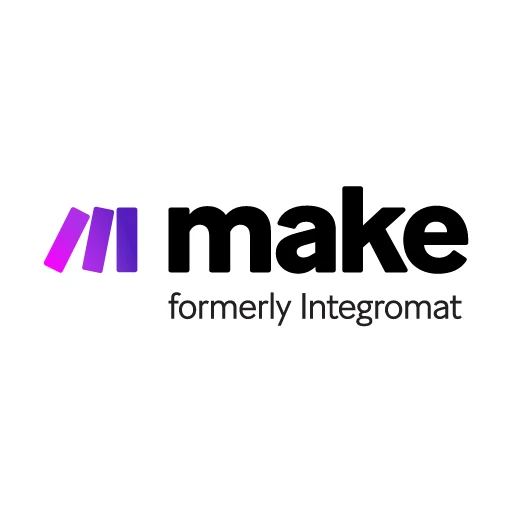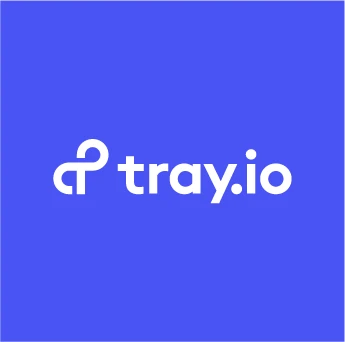Make vs Tray.io
Comprehensive side-by-side comparison of Make vs Tray.io including features, integrations, customer segments, supported platforms, pros & cons, and company details. Find the best integration platform as a service (ipaas) solutions solution for your business needs.
Product Comparison

Make
Automate Everything. No Code Required.

Tray.io
Empowering Enterprise Integration with No-Code Automation
Description
Make is a powerful, visual platform that empowers users to design, build, and automate complex workflows without writing a single line of code. Connect thousands of apps and services to streamline your operations, automate repetitive tasks, an...
Description
Tray.io is a leading cloud integration platform designed for enterprises seeking to automate complex workflows without relying on extensive coding. It empowers citizen automators – business users – to connect disparate applications, streamline...
Videos (1)
No videos available
Use Cases
Use Cases
Made For
Made For
Key Features
- Email Management
- Configurable Workflow
- Business Process Automation
- Workflow Configuration
- API
- Integrations Management
Key Features
- Access Controls/Permissions
- Customizable Fields
- Pre-built Connectors
- Automated Scheduling
- Multiple Data Sources
- Application Management
Industries
- Marketing & Advertising
- E-commerce
- Finance
- Healthcare
- Education
Industries
- Software
- E-commerce
- Financial Services
- Healthcare
- Retail
Customer Segments
- Freelancers
- Small Businesses
- Mid-size Businesses
- Large Enterprises
Customer Segments
- Small Businesses
- Mid-size Businesses
- Large Enterprises
Supported Platforms
- Web
Supported Platforms
- Web
Pros
- Powerful no-code automation capabilities
- Extensive integration options with thousands of apps
- Robust error handling and data transformation features
- Detailed execution histories for monitoring and troubleshooting
- Visual interface makes it accessible to non-technical users
Cons
- Complexity can be a barrier to entry for very simple tasks
- Pricing can become expensive for high-volume usage
Pros
- No-code/Low-code platform: Empowers business users to build integrations without developer resources.
- Scalability: Tray.Scale handles high volumes of data and complex workflows efficiently.
- Universal Connector: Integrates with any web-based service via API.
- Pre-built Connectors: Offers a wide range of pre-built connectors to popular applications.
Cons
- Potential Complexity: While no-code, complex workflows can still require significant configuration and understanding of logic.
- Cost: Enterprise-grade features and scalability can result in a higher price point compared to simpler integration tools.